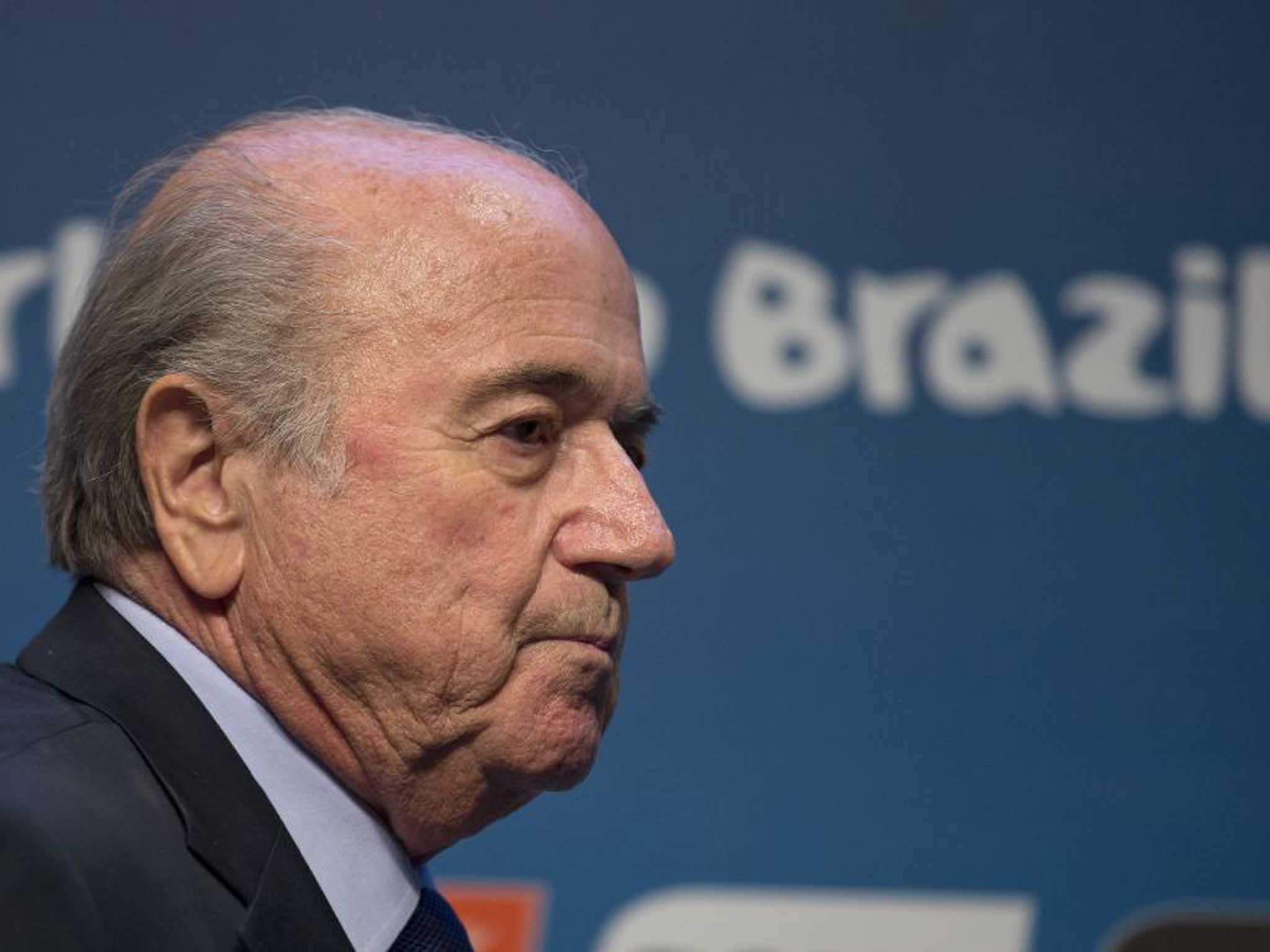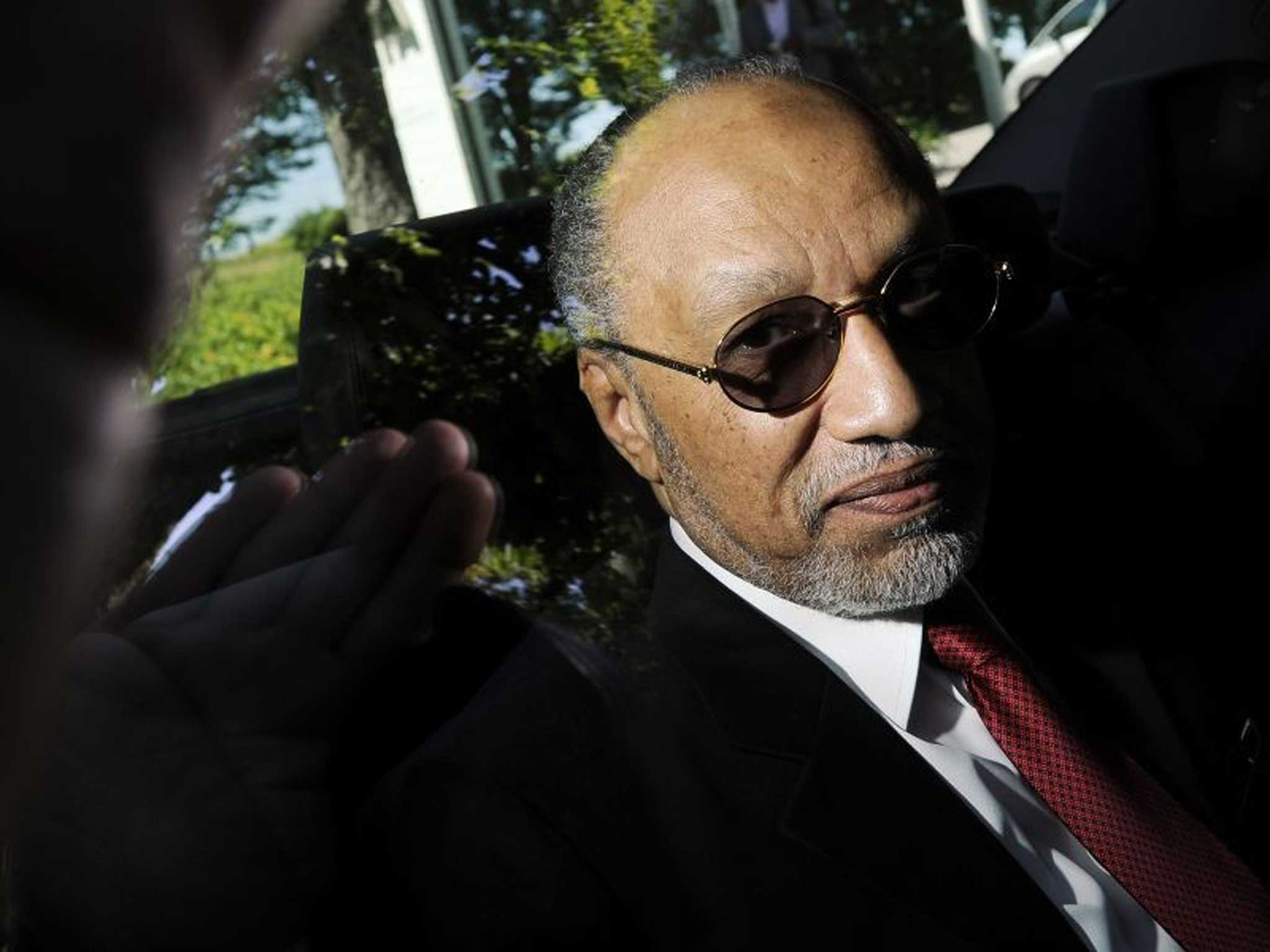World Cup 2022 special report: No legal action for Qatar if Fifa strips country of tournament
The Gulf state signed away its rights, which now means that football's governing body is free to order a new vote

Your support helps us to tell the story
From reproductive rights to climate change to Big Tech, The Independent is on the ground when the story is developing. Whether it's investigating the financials of Elon Musk's pro-Trump PAC or producing our latest documentary, 'The A Word', which shines a light on the American women fighting for reproductive rights, we know how important it is to parse out the facts from the messaging.
At such a critical moment in US history, we need reporters on the ground. Your donation allows us to keep sending journalists to speak to both sides of the story.
The Independent is trusted by Americans across the entire political spectrum. And unlike many other quality news outlets, we choose not to lock Americans out of our reporting and analysis with paywalls. We believe quality journalism should be available to everyone, paid for by those who can afford it.
Your support makes all the difference.Qatar will not be able to mount a legal challenge to Fifa if football's governing body strips it of the right to stage the 2022 World Cup. As controversy continues to rage over allegations of corruption surrounding the bid process, it has emerged that Qatar agreed to sign away its right to take any form of legal action against Fifa when it made its original tender for the tournament in 2010.
The Independent on Sunday can also reveal that a mechanism is available to football's governing body to order a new vote whereby infringements of its code of ethics are cited.
Qatar, which denies all corruption allegations, is now facing a major fight to hang on to the World Cup, and the subject is certain to feature strongly when Fifa holds its congress in Sao Paulo on Wednesday, one day before the 2014 World Cup opens.
It had been assumed that one reason Fifa might fail to order a revote for 2012 was fear of legal action by Qatar. But the legal officer of one of the bidding nations told The IoS: "All the bidding countries had to sign a registration document in which they agreed to be bound by Fifa's code of ethics. In a normal contract with an organisation based in Zurich, you would expect the agreement to be subject to Swiss law.
'

'But Fifa's code makes it clear that all disputes are decided by the appeals committee of Fifa's ethics committee. The appeals committee can be taken to the Lausanne-based Court of Arbitration in Sport. But this is a special arbitration body for sport, not a court of law.
''So should Fifa decide to have a revote, Qatar cannot take Fifa to a Swiss court. All bidding countries knew they were giving up their legal rights when bidding for the World Cup. But so keen are countries to get the World Cup, they happily agreed to do so."
This did not seem to matter at the time of the bidding as nobody expected to Qatar to win. Since then, the decision has proved so controversial that Fifa hired former US attorney Michael Garcia to investigate both the 2022 vote and the 2018 vote in which Russia beat England. Mr Garcia will complete his report tomorrow, although it will not be submitted to Fifa until next month.
However, this carefully planned Fifa timetable has been jeopardised following extensive revelations that Mohamed Bin Hammam, a Qatari who was then a Fifa vice-president, had allegedly paid bribes totalling £3m to football administrators round the world to influence the vote.

Mr Hammam was also a member of the Fifa executive that decided on Qatar in preference to the US, Japan and Australia. He has since been banned for life from Fifa for offences not connected with the bid. Qatar World Cup organisers insist that Mr Hammam had nothing to do with their bid and that they scrupulously followed Fifa's code of ethics.
However, according to well-informed sources, Fifa could now use this very code of ethics to deny Qatar the prize. Crucial to such a decision would be clause two of the code. This says: "Officials shall show an ethical attitude when performing their duties. They shall pledge to behave in a dignified manner. They shall behave and act with complete credibility and integrity."
One official from another bidding country, who has given evidence to Mr Garcia, told The IoS: "This is Fifa's version of the FA's catch-all clause of 'bringing the game into disrepute', which has often helped the FA bring charges when there was no specific evidence.
"Fifa could order a revote saying that, while there may be no direct link between Hammam and Qatar, the whole process lacked integrity. And to justify this, Fifa could also use the fact that its own evaluation report said a World Cup in Qatar in the summer when temperatures can rise to 50C was high risk, the only bidding country to be so classified."
Some inkling of Fifa's thinking may emerge on Wednesday when the organisation holds its congress in Sao Paulo. Before the latest revelations, this was expected to be another celebration for Fifa's president, Sepp Blatter, with the 78-year-old announcing that he would serve a fifth term when elections are held next year. However, now there is strong pressure for Uefa to find a candidate who offers a credible alternative to the Swiss.
Join our commenting forum
Join thought-provoking conversations, follow other Independent readers and see their replies
Comments